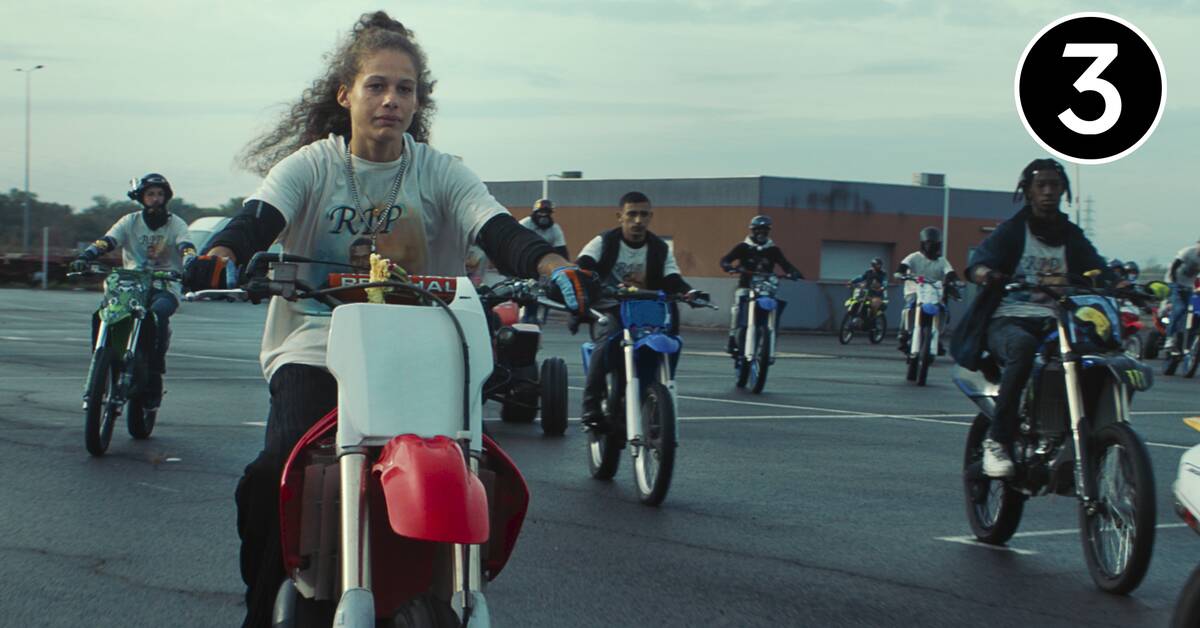"Rodeo"
does not house horses, which is thankfully because Brunte has become a tired and overused symbol of freedom within European (mainly British) social realism ("Fish tank", "The selfish giant", "Calm by horses" etc.).
Instead, a lot of horsepower between the legs of all the youngsters and young adults pulling back and forth on howling lightweights in the French suburbs in director Lola Quivoron's feature film debut.
At the center of the story spins Julia, a force of nature on two wheels who joins a group of guys practicing motorcycle gymnastics for a competition that will never come off.
The gang raises money by butchering, refurbishing and then selling bikes, and when their leader, who rules from the finca, learns of Julia's ability to steal motorcycles, she rises through the ranks, which not all the hotties around her like.
Think of it as
a mix of "Fast and the furious" and Andrea Arnold's "American honey".
So: vehicular action
and
drama about a young woman making her way in a harsh world.
Okay, the association "American honey" probably comes up mostly because the main character there, Star, is quite similar to Julia.
But Lola Quivoron is not the same nature romantic as Andrea Arnold (has become).
The quivoron's habitat is the attic and the asphalt.
Forward movement as freedom movement.
"Rodeo" won the jury's prize in Cannes last year, in the hottest section, Un Certain Regard (UCR), which in pure Swedish means that the film is a little unlucky.
And it really is.
Raises questions but offers no answers.
The most poking: Who is Julia?
Or "The Stranger", as she not-so-pretentiously calls herself.
We get few clues.
If even anyone.
She has a tormented face, so we realize that something is going on inside.
Maybe that's good.
Less is always more, at least when it comes to script exposition.
I'd rather fumble for clues than get them tattooed on my nose, but this is borderline.
Julia's relationship with the league leader's wife Ophelié (Antonia Buresi, also script) is not easy to understand.
And why is Ophelié a pig to her little son?
Perhaps we should see the film's only two women as representatives of an entire womanhood sprained by patriarchal dominance.
Well, it works, as a theory of analysis, but that doesn't make this brief visit to Julia's life more engaging.
On the upside
, however, there is a nice edgy tone of frustration, a docile camera that places us behind the handlebars of the creaking motorbikes and, perhaps above all, amateur Julie Ledru's fiery portrait of a young person who with unyielding power and self-evident conviction challenges all imaginable laws of nature.
And yes, the ending is awesome in all its fuzziness, breaks conventions and genre boundaries - puts halo on Julia and stupidity on signed as boxed realism in the wrong movie.

